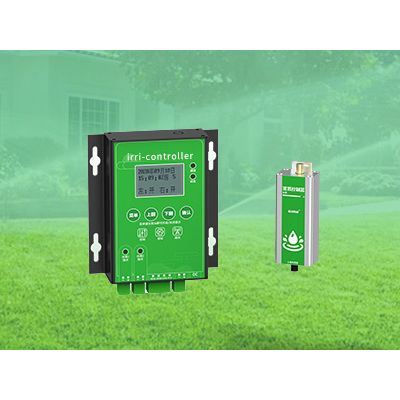

- Home
- Companies
- Soil Sensors & Weather Detectors for ...
- Articles
- Intelligent irrigation controller, the ...

Intelligent irrigation controller, the key to agricultural modernization
Background:
With the increasing demand for efficient and sustainable agricultural practices, intelligent irrigation controllers have become a key component of modern agricultural management. These systems provide a platform for precision agriculture, enabling farmers to optimize water use, increase crop yields and reduce environmental impact. In this article, we will explore the role of intelligent irrigation controllers in agricultural modernization and their potential to transform the agricultural sector.
Intelligent irrigation controller for precision agriculture:
Precision agriculture is a method of using advanced technology to monitor and manage agricultural operations at a finer scale. It relies on data-gathering sensors and advanced analytics to optimize crop production, water use, and other agricultural inputs. Intelligent irrigation controller is one of the key components of precision agriculture.
An intelligent irrigation controller is a device that uses advanced algorithms and sensors to measure and control the amount of water delivered to crops. These systems collect data on soil moisture, weather conditions, and crop health and analyze it in real time to determine the optimal amount of water needed in each area of the field. They can also adjust watering schedules based on weather forecasts and historical data to ensure plants are getting the right amount of water at the right time.
The role of intelligent irrigation controller in agricultural modernization:
1. Water Conservation: By precisely controlling the amount of water at each plant, smart irrigation controllers help farmers reduce water waste and protect this valuable resource. This is particularly important in areas where water is scarce and crop production is limited by water availability.
2. Improve crop yields: Through precise water management, intelligent irrigation controllers enable farmers to optimize crop growth and increase yields. By providing the exact amount of water each plant needs, these systems prevent over - or under-watering, ensuring that crops receive the necessary amount of water to support healthy growth.
3. Improve soil quality: Smart irrigation controllers also help improve soil quality, allowing farmers to precisely control the amount of water. This prevents soil erosion, maintains soil fertility and ensures that the soil remains productive for future crops.
4. Reduce environmental impact: By reducing water waste and soil erosion, smart irrigation controllers help protect the environment from the negative impacts of agricultural practices. This, in turn, supports sustainable agricultural development.
Efficient resource management: These systems also provide farmers with an efficient way to manage other agricultural inputs such as fertilizers and pesticides. By using data-driven decisions, smart irrigation controllers enable farmers to use these inputs only when they are needed, reducing costs and environmental impact.
Potential challenges and solutions
Despite the many benefits of intelligent irrigation controllers, farmers may also face some potential challenges when implementing these systems. These challenges include the initial cost of purchasing and installing the system, the need for advanced technical knowledge to operate and maintain the system efficiently, and the possibility of system failure during the critical growth period.
To address these challenges, several solutions can be implemented. First, government agencies and agricultural organizations can provide financial incentives or subsidies to help farmers offset the initial cost of purchasing a smart irrigation controller. Second, training and education programs can be developed to provide farmers with the technical knowledge needed to operate and maintain these systems effectively. Finally, backup systems and redundancy measures can be implemented to prevent system failures during critical growth periods.
In conclusion, intelligent irrigation controllers play a vital role in agricultural modernization, enabling farmers to achieve sustainable and efficient crop production while protecting the environment. By overcoming potential challenges and leveraging the numerous benefits of these systems, farmers can create new opportunities for precision agriculture to grow and prosper.
